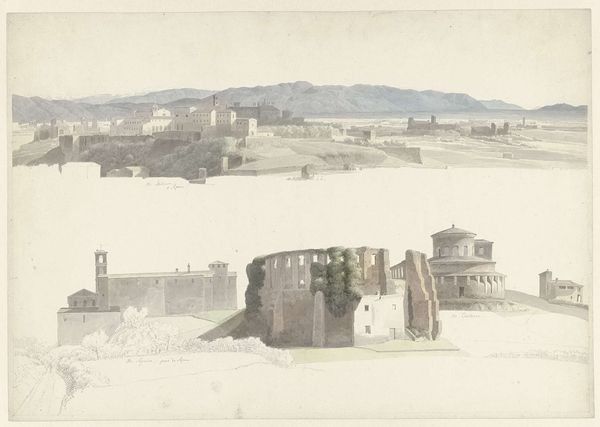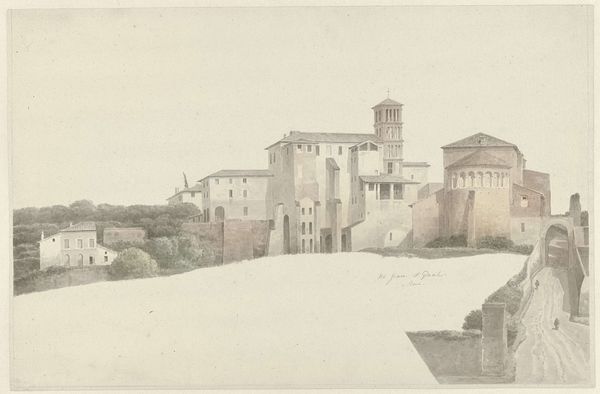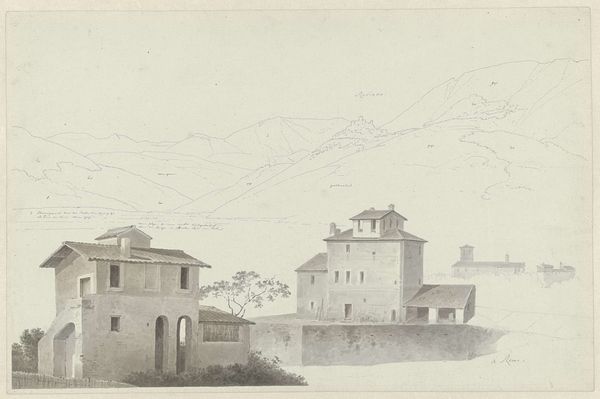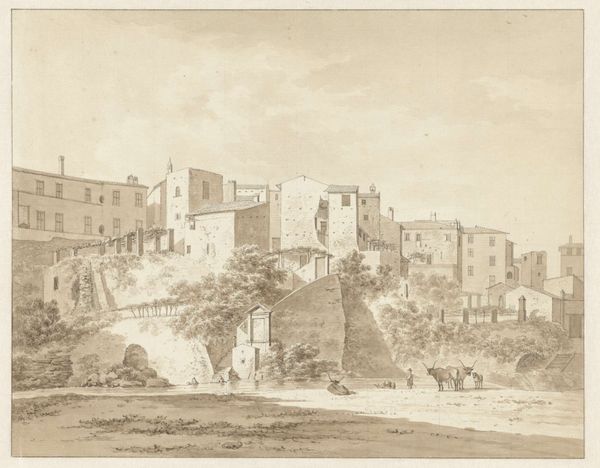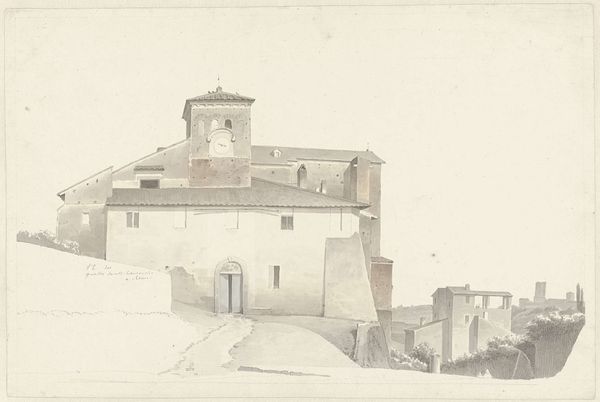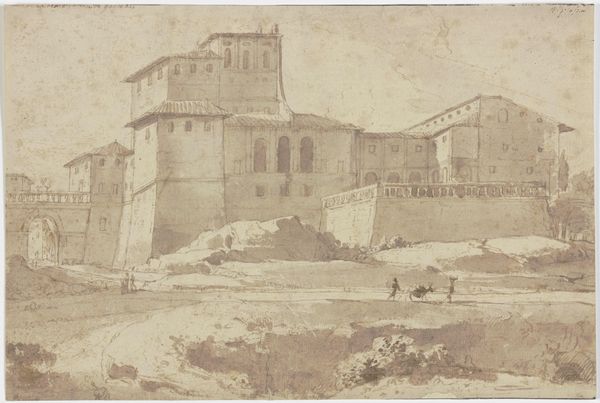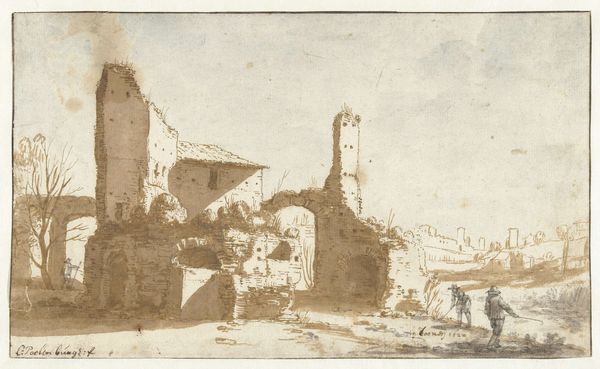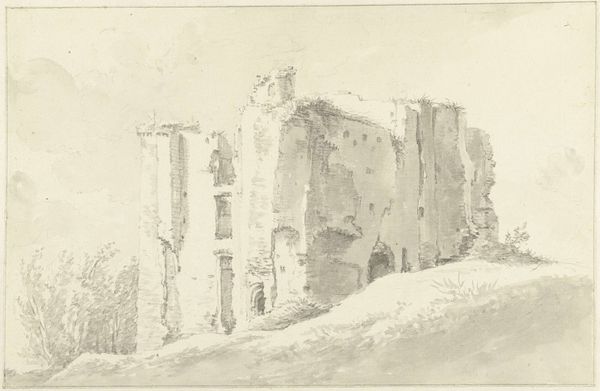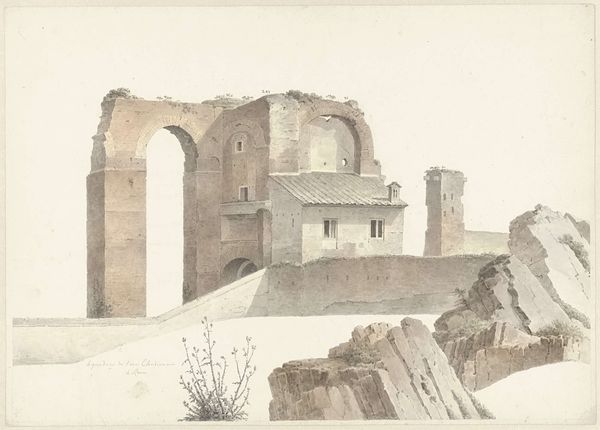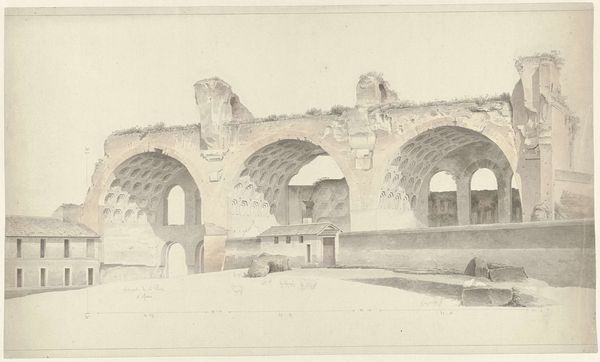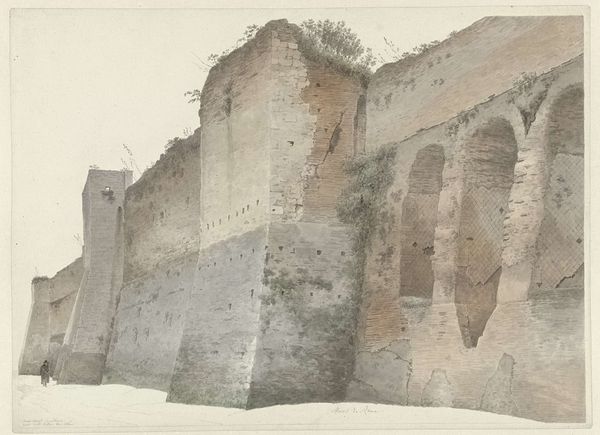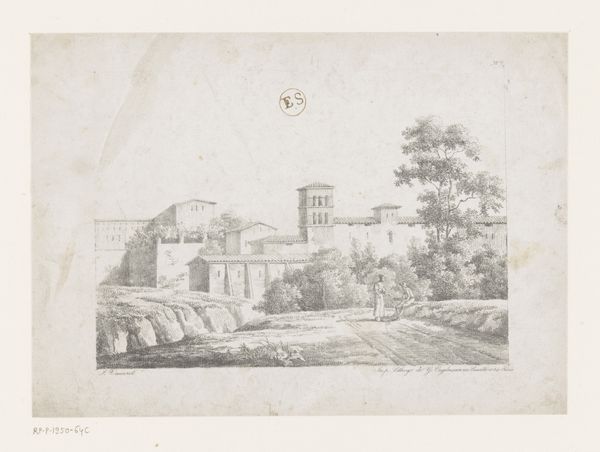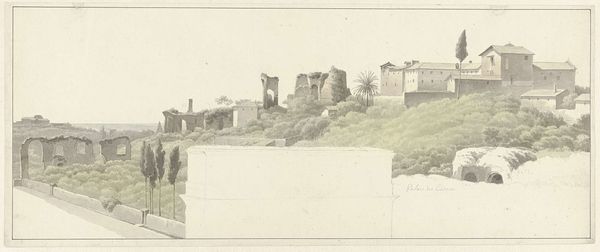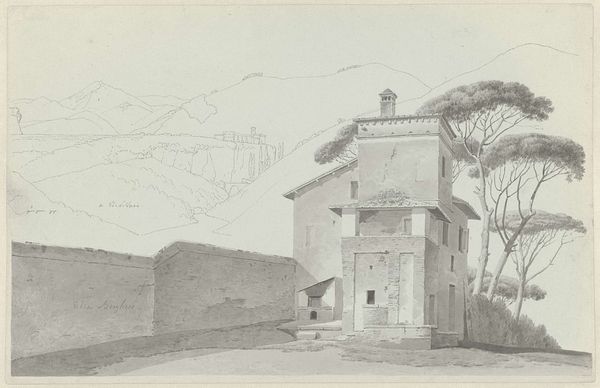
The Basilica and Monastery of the Quattro Santi Coronati in Rome c. 1809 - 1812
0:00
0:00
drawing, paper, watercolor, pencil, architecture
#
drawing
#
neoclacissism
#
landscape
#
paper
#
watercolor
#
pencil
#
cityscape
#
italian-renaissance
#
watercolor
#
architecture
Dimensions: height 260 mm, width 423 mm
Copyright: Rijks Museum: Open Domain
Josephus Augustus Knip created this watercolor of The Basilica and Monastery of the Quattro Santi Coronati in Rome. Knip was born in the Netherlands in 1777, and much of his artistic career was spent in France. Here, the monastery looms. The palette is restrained, almost sepia-toned, and the edifice is depicted in a style that attempts to faithfully capture its architectural details. Yet, the image raises questions about power and representation. In the 18th and 19th centuries, European artists often traveled to Italy, drawn by its rich history and classical architecture. But what does it mean to depict such a site? How does the artist's Northern European perspective shape the narrative of Italian history and identity? This representation invites us to consider not only what is shown, but also what is left out. Whose stories are centered, and whose are marginalized in the creation of such a landscape?
Comments
rijksmuseum over 2 years ago
⋮
Even now this complex, located halfway between the Colosseum and the basilica of San Giovanni in Laterano, still looks like a virtually impenetrable medieval stronghold. According to legend, the ‘Four crowned martyrs’ to whom the church is consecrated were sculptors who refused to make pagan idols. They were tortured by being forced to wear iron crowns with the sharp points pressing into their heads.
Join the conversation
Join millions of artists and users on Artera today and experience the ultimate creative platform.
